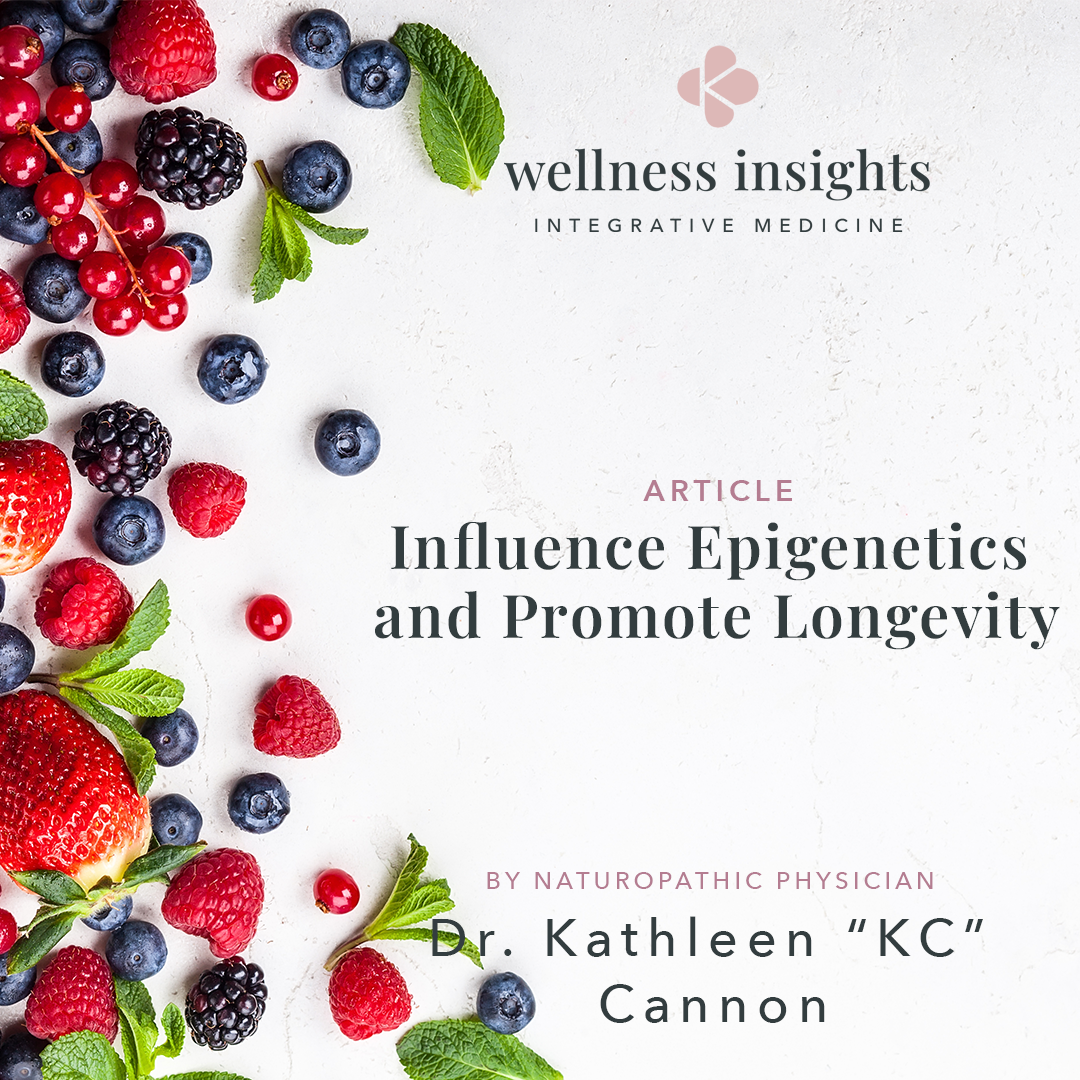Food as Medicine: How a Nutrient-Dense Diet Can Influence Epigenetics and Promote Longevity
The connection between nutrition and genetic expression has gained attention over the past several years.
A pivotal study published in JAMA Network revealed that nutrient-dense foods rich in antioxidants and anti-inflammatory compounds, such as those found in the Mediterranean diet, were linked to a younger epigenetic age, while diets high in sugar were associated with an older epigenetic age. This highlights the profound impact that a balanced, anti-inflammatory, whole foods diet can have on your overall health as well as on how your genes express themselves.
Epigenetics is the study of how environmental factors, including the food we consume, affect the expression of our genes. Unlike genes, which are static, epigenetics allows us to influence how our genes are expressed.
As a naturopathic physician, using nutrition to support health - food as medicine - is foundational. The foods we choose to eat and nourish our bodies with every day are the literal building blocks for health. I’m reminded of a meme from years ago that asked, “Do you want a body made out of cheetos and fruit loops, or do you want a body made out of vegetables and lean protein?” A funny image, but you get the idea.
Epigenetics provides an opportunity to harness the power of nutrition to optimize our health and even slow the aging process. In fact, the study authors found “healthier diets were associated with decelerated epigenetic aging.”
Understanding how specific nutrients can impact health, including genetic expression, is especially helpful in preventing chronic disease, improving quality of life and supporting your well-being for the long-term.
General recommendations for health can be helpful. Individualized treatment and lifestyle plans that are tailored to you are on another level. A naturopathic plan tailored to you takes into account not only your own health history but also your individual risk factors, family history and test results along with your goals and priorities.
The science of epigenetics provides us with tools to personalize dietary plans based on your individual needs, taking all of this into account. For example, someone with a family history of cardiometabolic disease might benefit from a diet rich in lean protein, healthy fats, fiber and antioxidants that’s also low in unhealthy fats, refined sugars and processed carbs. By creating a tailored plan to support your health, we can aim to slow the progression of chronic disease, reverse it or prevent it altogether before it happens.
Using food as medicine is beautifully simple and efficient. When you choose a handful of antioxidant-rich blueberries over a sugary dessert, you're not only making a choice for your immediate health, but you're also influencing epigenetics.
The study authors noted, “Each gram increase in added sugar intake was associated with…accelerated epigenetic aging.” It’s empowering when you realize that your food and drink choices have a direct effect on your cellular health and genetic expression.
Another cornerstone of naturopathic medicine is patient education. Understanding the why behind every recommendation empowers you to make better decisions and take charge of your health.
We all know vegetables are generally healthy and refined sugar isn’t. When you understand how the nuances of your choices impact your individual health, it can be a gamechanger for not only making but also sustaining improvements in your diet and lifestyle. This is where you optimize and uplevel your health.
After all, knowledge is power and when it comes to nutrition as a foundation for health, it’s knowledge coupled with care that can transform your well-being.
Source: JAMA Network Open. "Association Between Diet and Epigenetic Aging." DOI: 10.1001/jamanetworkopen.2024.22749

